The Five Worst Roman Emperors: A Legacy of Tyranny and Excess
The dark side of Roman history. 5 of the worst emperors that left their mark on history with scandals, cruelty and paranoia.
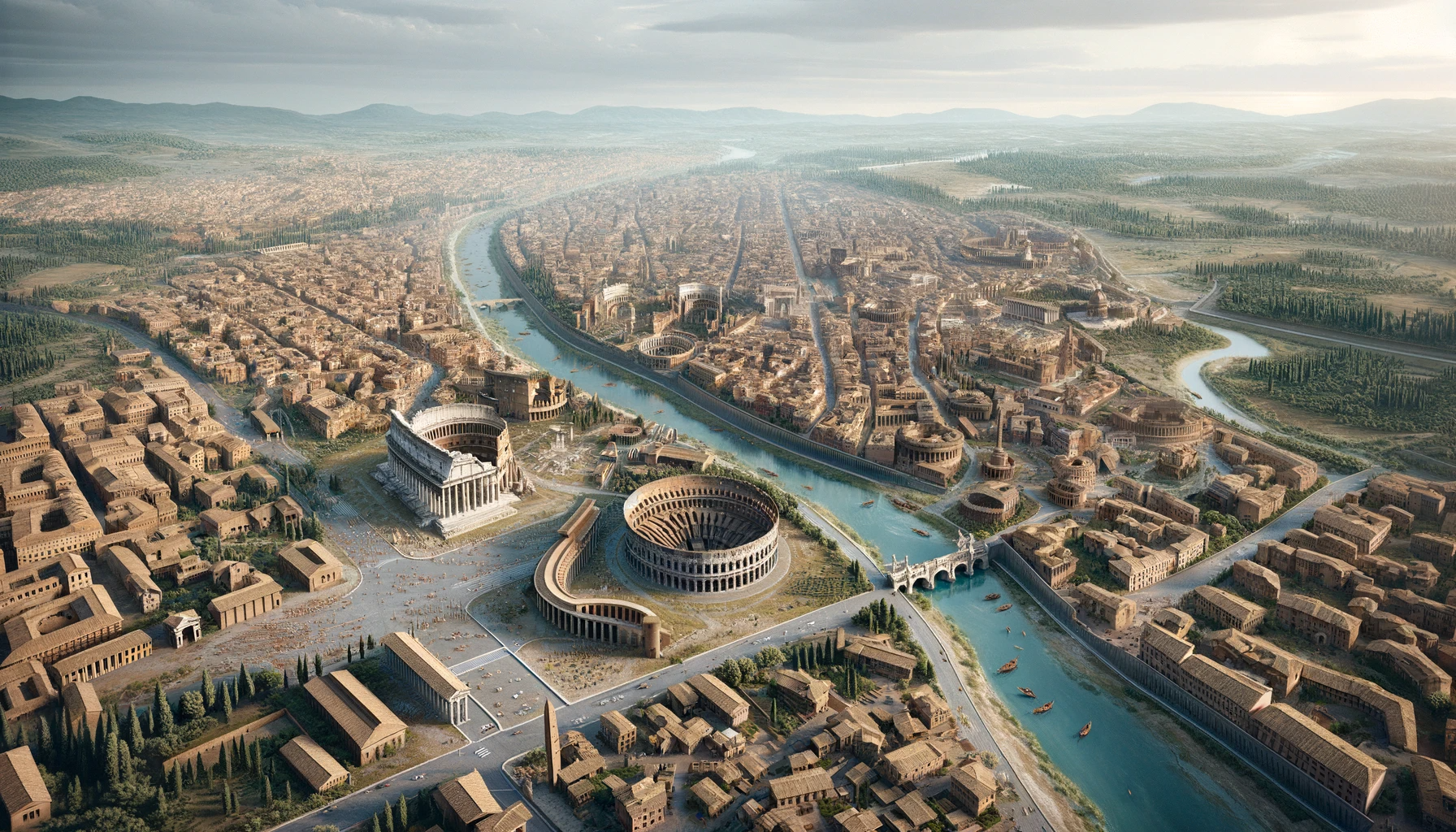
Throughout its illustrious history, the Roman Empire was home to a series of emperors whose reigns were marked by wisdom and military prowess. However, it also saw the rise of leaders whose names have become synonymous with cruelty, incompetence, and corruption. Diving into the darker side of Roman history, we find emperors whose reigns were characterized by their notorious actions.
Emperor Nero: A Reign of Darkness and Despotism
Emperor Nero, ascending to the Roman throne in 54 AD at just 16, is often remembered as one of the most infamous tyrants in history. His reign, lasting until 68 AD, was marked by a series of catastrophic events and personal excesses that have etched his name in the annals of infamy.
Initially, Nero's reign began under the guidance of his tutor, Seneca, and the Praetorian Prefect, Burrus, who helped maintain a semblance of stability. However, as Nero gained more autonomy, his darker traits began to surface. His rule gradually shifted from a promising start to a despotic regime characterized by paranoia, cruelty, and extravagance.
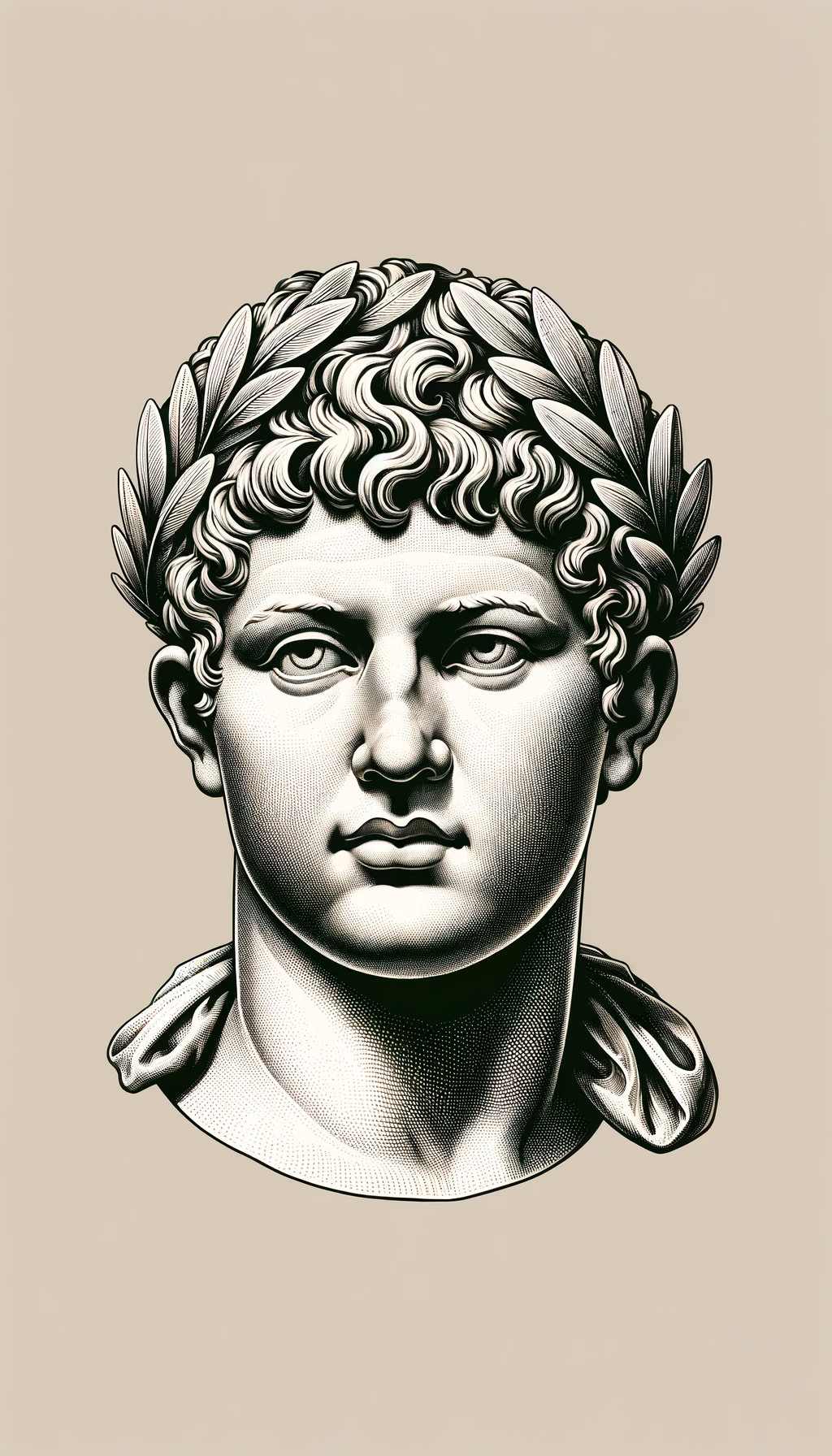
One of Nero's most heinous acts was the murder of his mother, Agrippina the Younger. The relationship between Nero and Agrippina was complex and fraught with power struggles. Agrippina's influence over Nero and her involvement in imperial affairs led to growing tension between them. Nero's decision to eliminate his mother in 59 AD marked a turning point in his reign, showcasing his ruthlessness and disregard for familial bonds.
Nero's reign is infamously associated with the Great Fire of Rome in 64 AD. While it remains unclear whether Nero was responsible for starting the fire, he capitalized on the disaster to rebuild Rome according to his grandiose vision, including the construction of his lavish Golden House, the Domus Aurea. In the aftermath, Nero scapegoated the Christians, subjecting them to brutal persecution, including using them as human torches in his gardens, an act that cemented his reputation as a cruel and tyrannical ruler.
Nero fancied himself an artist and musician, often performing in public, much to the chagrin of the Roman elite. His participation in theater and music, traditionally considered unbecoming of a Roman emperor, along with his heavy taxation to fund his artistic endeavors and lavish lifestyle, led to widespread discontent among the populace and the elite.

Nero's rule eventually spiraled into chaos, marked by conspiracy, rebellion, and economic turmoil. In 68 AD, facing revolt and abandonment by his guards and advisors, Nero was declared a public enemy by the Senate. Fleeing Rome, he eventually took his own life, reportedly uttering the words, "What an artist dies in me!"
Caligula: The Emperor of Excess and Cruelty
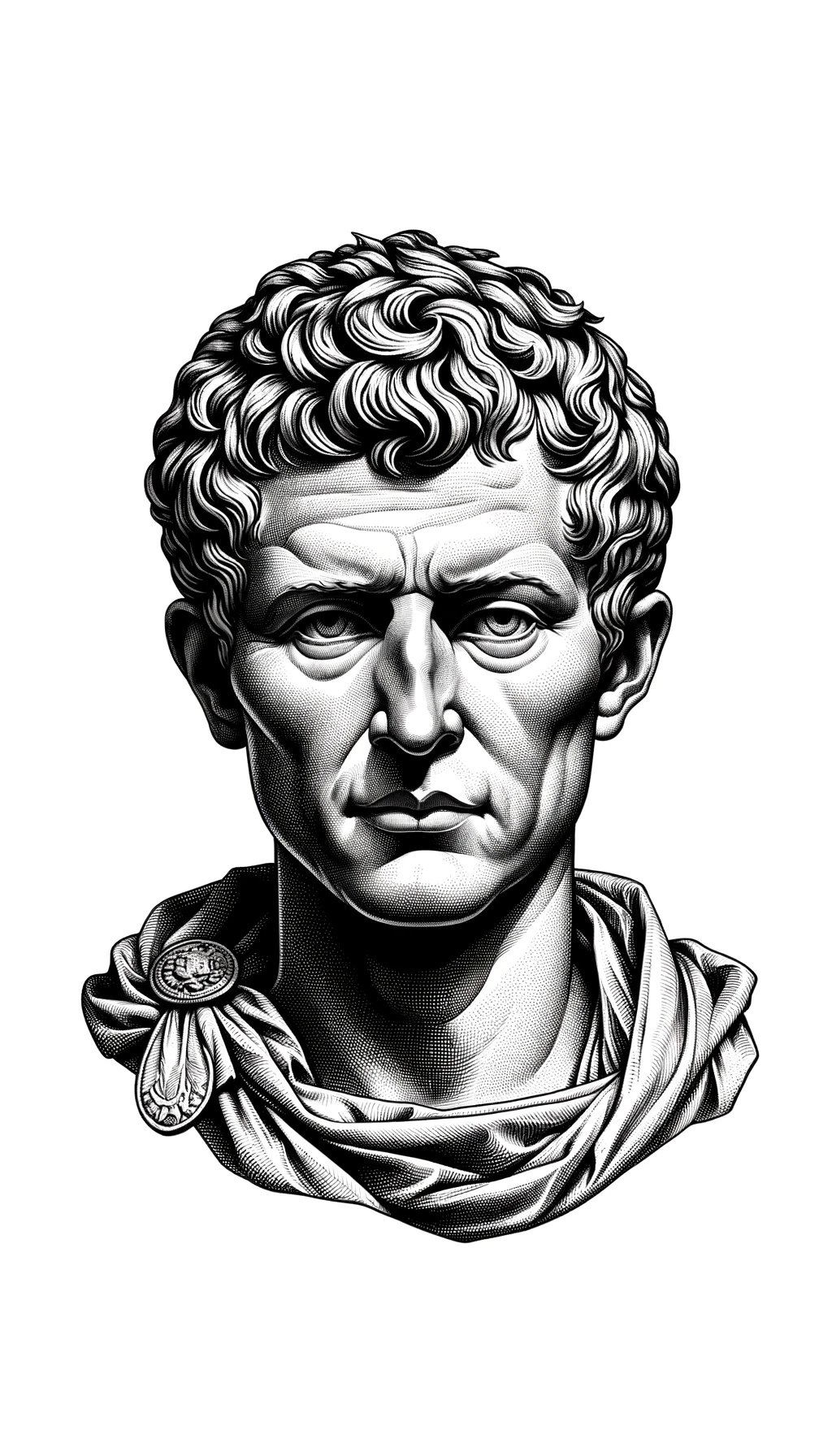
Gaius Julius Caesar Augustus Germanicus, better known as Caligula, reigned as Roman Emperor from 37 AD to 41 AD. His short tenure as emperor is one of the most infamous in Roman history, marked by extreme cruelty, debauchery, and a descent into madness that has made his name synonymous with tyrannical excess.
Caligula's ascent to power was initially met with widespread approval. He was the son of the popular general Germanicus and was seen as a refreshing change after the dark, reclusive reign of his predecessor, Tiberius. Early in his reign, Caligula made several popular decisions, such as abolishing certain taxes and granting bonuses to the military.
However, Caligula's promising start soon gave way to a reign of terror. After falling seriously ill in the first year of his rule, Caligula underwent a drastic change in personality. He became increasingly erratic, cruel, and indulgent in his personal whims. He showed a disturbing penchant for sadism, often ordering executions for minor offenses and delighting in watching people suffer.
Caligula's rule was marked by numerous acts of shocking depravity. He is infamous for his sexual promiscuity, including incestuous relationships with his sisters and turning the imperial palace into a brothel. He also declared himself a living god and demanded public worship, going so far as to dress like various gods and goddesses.
One of the most bizarre episodes of his reign was his declaration of war on the sea. Caligula ordered his soldiers to attack the waves with their swords and collect seashells as "spoils of war," an act that demonstrated his growing detachment from reality.
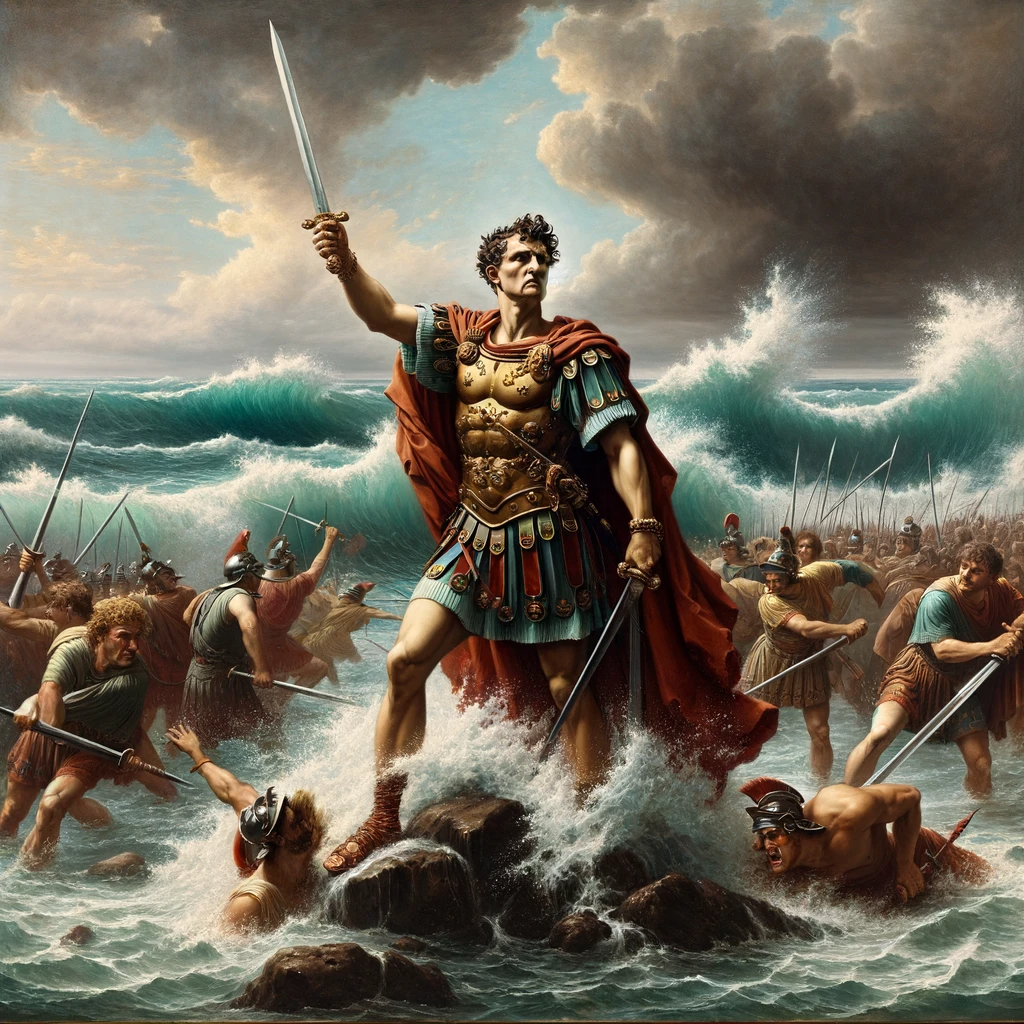
Caligula's extravagant spending rapidly depleted the Roman treasury. He squandered vast sums on lavish building projects, extravagant parties, and expensive gifts to his supporters. His financial mismanagement put a significant strain on the empire's economy and led to the implementation of heavy taxes and extortion schemes.
Caligula's reign of terror came to an abrupt end in 41 AD when he was assassinated by members of his own Praetorian Guard. His increasingly erratic behavior and disrespect for Roman institutions had turned even his closest allies against him.
Caligula's legacy is one of the darkest in Roman history. He is remembered as a mad tyrant whose reign was a period of unprecedented cruelty and chaos. His rule serves as a cautionary tale of the dangers of absolute power and the corrupting influence it can have on even the most promising of leaders.
Commodus: The Gladiator Emperor's Descent into Despotism
Commodus, the son of the esteemed Emperor Marcus Aurelius, ascended to the Roman throne in 180 AD. His reign, which lasted until 192 AD, is often remembered as a stark departure from his father's stoic and disciplined rule, descending into a period of narcissism, cruelty, and capriciousness that ultimately led to his downfall.
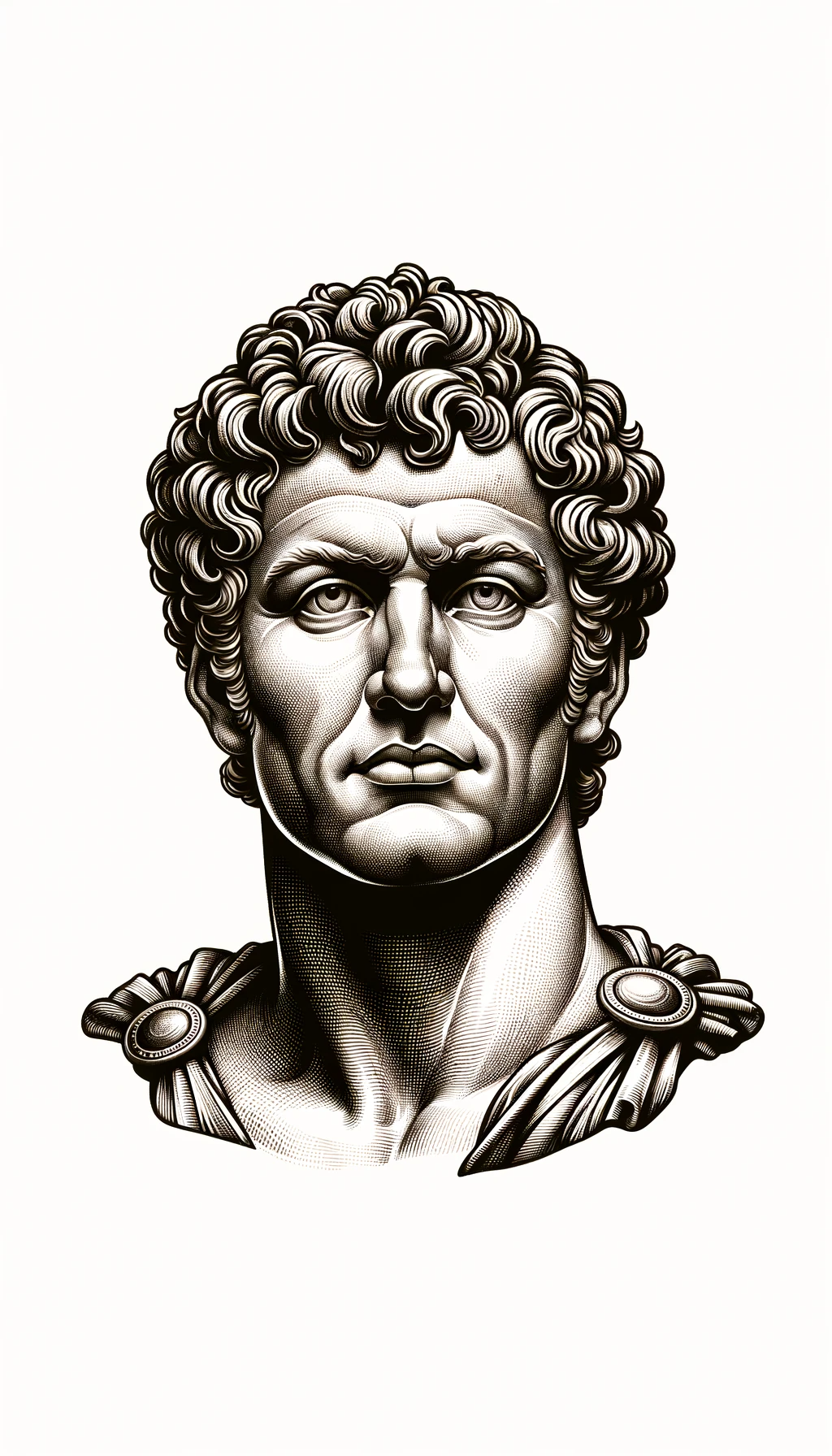
Initially, Commodus co-ruled with his father, Marcus Aurelius, the last of the "Five Good Emperors." However, upon his father's death, Commodus quickly abandoned the ongoing military campaigns and sought peace to return to Rome. This decision marked the beginning of his deviation from his father's principles and the start of his self-indulgent rule.
Commodus is perhaps most infamous for his obsession with gladiatorial combat, an interest considered unbecoming for a Roman Emperor. He often participated in gladiator fights, an act that not only endangered his life but also degraded the dignity of his office. Commodus saw himself as the reincarnation of Hercules, frequently dressing like the demigod and fighting in the arena, much to the dismay and embarrassment of the Roman elite.
As his reign progressed, Commodus became increasingly tyrannical and paranoid. He purged political adversaries and perceived enemies, leading to a reign of terror in Rome. His paranoia was not entirely unfounded, as conspiracies against him were frequent, but his response was often brutal and disproportionate.
Commodus's rule was marked by extravagant spending on games, statues (often of himself), and other public spectacles designed to glorify his image. He renamed Rome to 'Colonia Commodiana' (the Colony of Commodus) and even the months of the year after his various titles, in a grandiose display of self-aggrandizement.
The culmination of Commodus's misrule came with his assassination on December 31, 192 AD, an act orchestrated by his inner circle, including his mistress and the Praetorian Prefect. His death marked the end of the Nerva-Antonine dynasty and plunged the Roman Empire into a year of civil war, known as the Year of the Five Emperors.
Commodus's legacy is one of misrule and self-obsession. He is often cited as a primary example of the dangers of hereditary succession in imperial systems, demonstrating how a single ruler's incompetence and vanity can undermine years of stable governance. His reign is a stark reminder of how far the Roman Empire had strayed from the virtues and discipline that once made it great.
Elagabalus: The Eccentric Teenage Emperor
Elagabalus, also known as Heliogabalus, was a Roman Emperor who reigned from 218 to 222 AD. His rule, though brief, was marked by extreme eccentricity, religious fanaticism, and scandalous behavior that shocked the Roman society of his time.
Elagabalus was a member of the Severan dynasty, a distant cousin to the previous emperor, Caracalla. His rise to power was unexpected and largely orchestrated by his ambitious grandmother, Julia Maesa. She capitalized on his resemblance to Caracalla and used the Roman legions' dissatisfaction with the current emperor, Macrinus, to stage a revolt that eventually placed the 14-year-old Elagabalus on the throne.
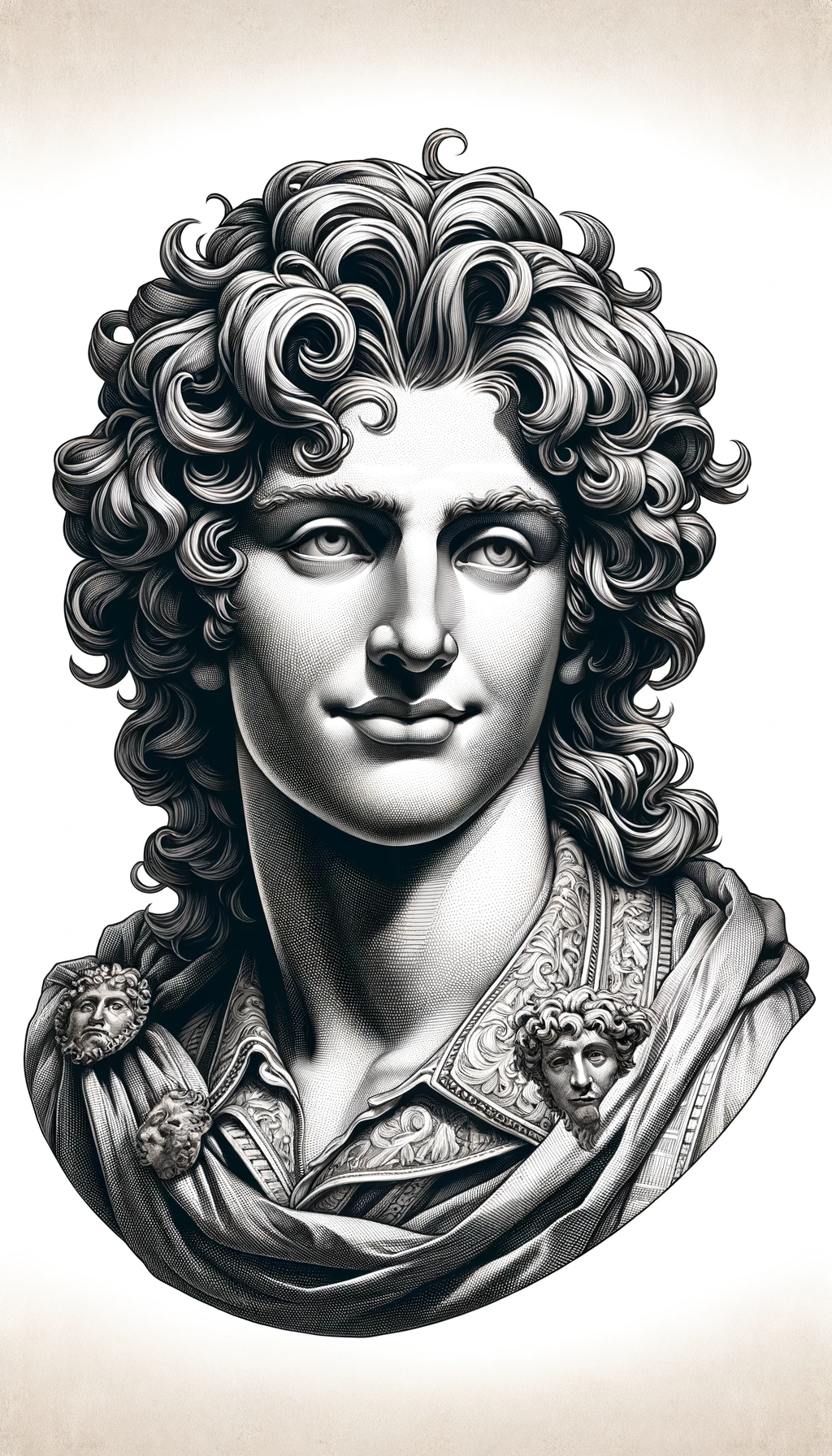
One of the most defining aspects of Elagabalus' reign was his devotion to the Syrian sun god El-Gabal (also known as Elagabal), from whom he took his name. He attempted to establish El-Gabal as the chief deity of the Roman pantheon, a move that was met with resistance and disdain by the traditional Roman religious establishment. He even went as far as marrying a Vestal Virgin, which was both scandalous and a violation of Roman law, to symbolize the union of his god with Rome.
Elagabalus' behavior was unconventional and often shocking. He is reported to have engaged in numerous sexual escapades and marriages, both heterosexual and homosexual, some of which were with individuals of low social standing, causing outrage among the Roman elite. His flamboyant and extravagant lifestyle, along with his disregard for Roman religious and social norms, alienated many of his subjects.
While Elagabalus was preoccupied with religious and personal pursuits, the administration of the empire suffered. He delegated most of his official duties to his mother and grandmother, showing little interest in the day-to-day governance of the empire. This neglect led to administrative inefficiency and contributed to the growing dissatisfaction among the Roman populace and the Praetorian Guard.
Elagabalus' reign came to an abrupt end when he was assassinated by the Praetorian Guard at the age of 18. His attempt to replace his cousin Alexander Severus as his heir led to a conspiracy by the Praetorian Guard, who murdered him and his mother and threw their bodies into the Tiber River.
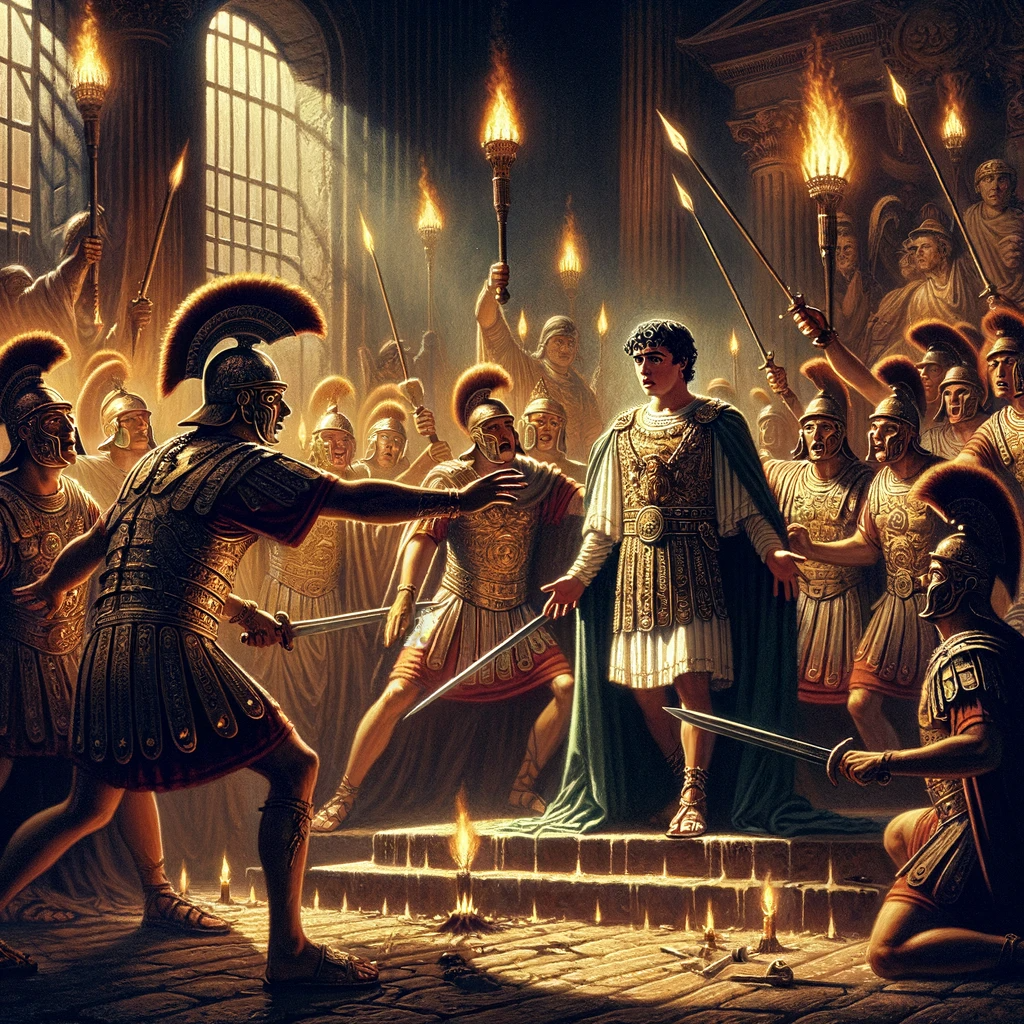
Elagabalus' legacy is one of the most controversial in Roman history. He is often remembered more for his eccentricities and scandalous behavior than for any political or administrative achievements. His reign is a vivid example of how personal excesses and religious fanaticism can undermine the authority and stability of an emperor, leaving a lasting impact on the perception of the Severan dynasty and the later period of the Roman Empire.
Caracalla: The Paranoid Ruler
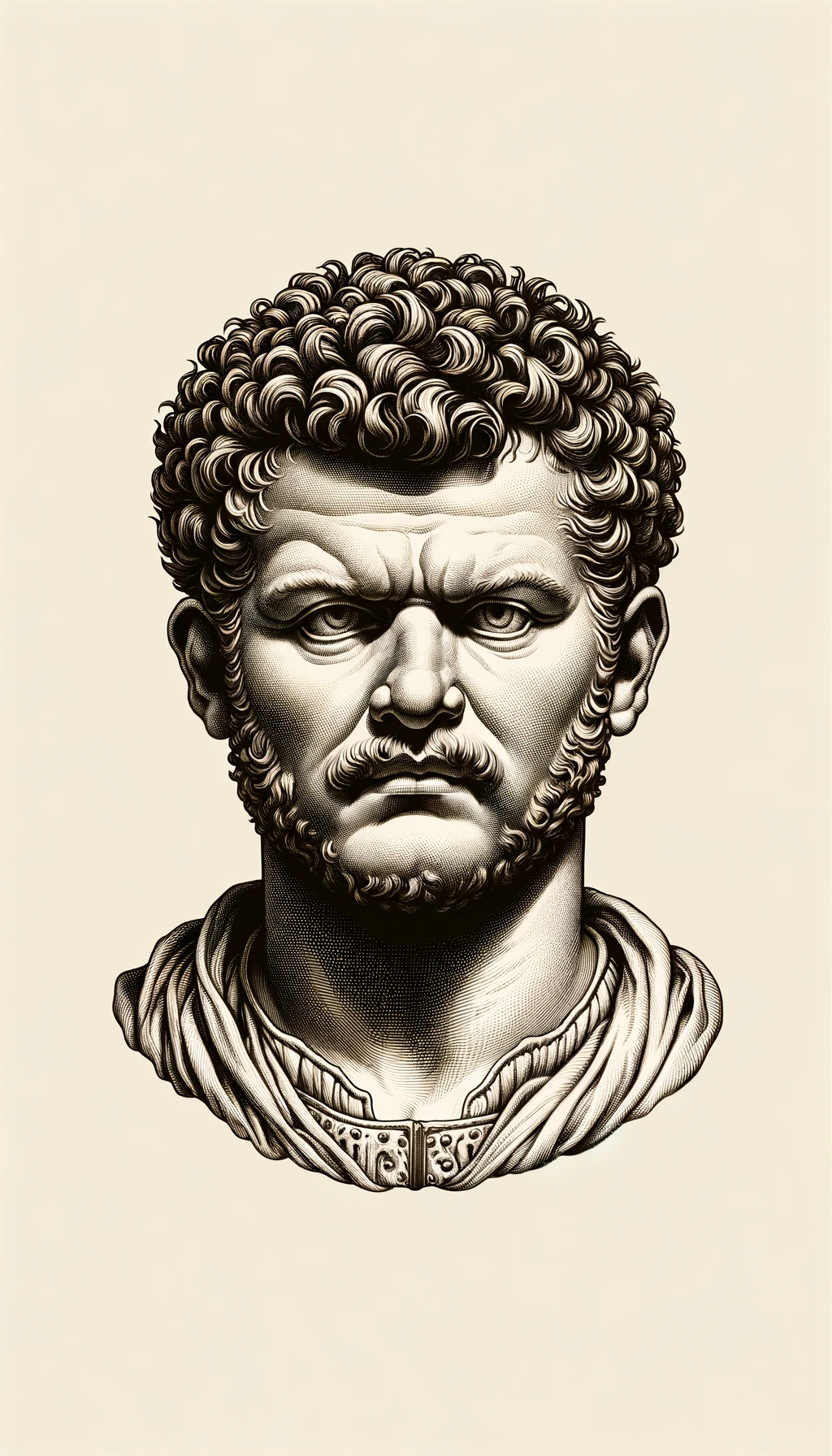
Caracalla, born Lucius Septimius Bassianus and later named Marcus Aurelius Severus Antoninus Augustus, was a Roman Emperor who ruled from 198 to 217 AD. His reign is often remembered for its brutality, paranoia, and significant administrative reforms, which left a complex legacy in Roman history.
Caracalla was the elder son of Septimius Severus, the founder of the Severan dynasty. He was named co-emperor with his father in 198 AD and later with his younger brother Geta in 209 AD. The relationship between Caracalla and Geta was notoriously fraught, marked by intense rivalry and mutual distrust.
The most infamous act of Caracalla's reign was the murder of his brother Geta in 211 AD, an event that set the tone for his sole rule. The fratricide was particularly shocking as it occurred in the presence of their mother, Julia Domna. Following Geta's death, Caracalla initiated a bloody purge, eliminating Geta's supporters and ordering a damnatio memoriae, a condemnation of memory, against his brother, attempting to erase all traces of his existence.
Caracalla was known for his military campaigns, particularly against the Parthian Empire, which were partly driven by a desire to emulate Alexander the Great. He was also recognized for his significant administrative reform, the Constitutio Antoniniana (also known as the Edict of Caracalla) in 212 AD, which granted Roman citizenship to all free men within the Roman Empire. This edict was a monumental step in Roman legal history, though it was likely motivated more by a need to increase tax revenues than by a sense of egalitarianism.
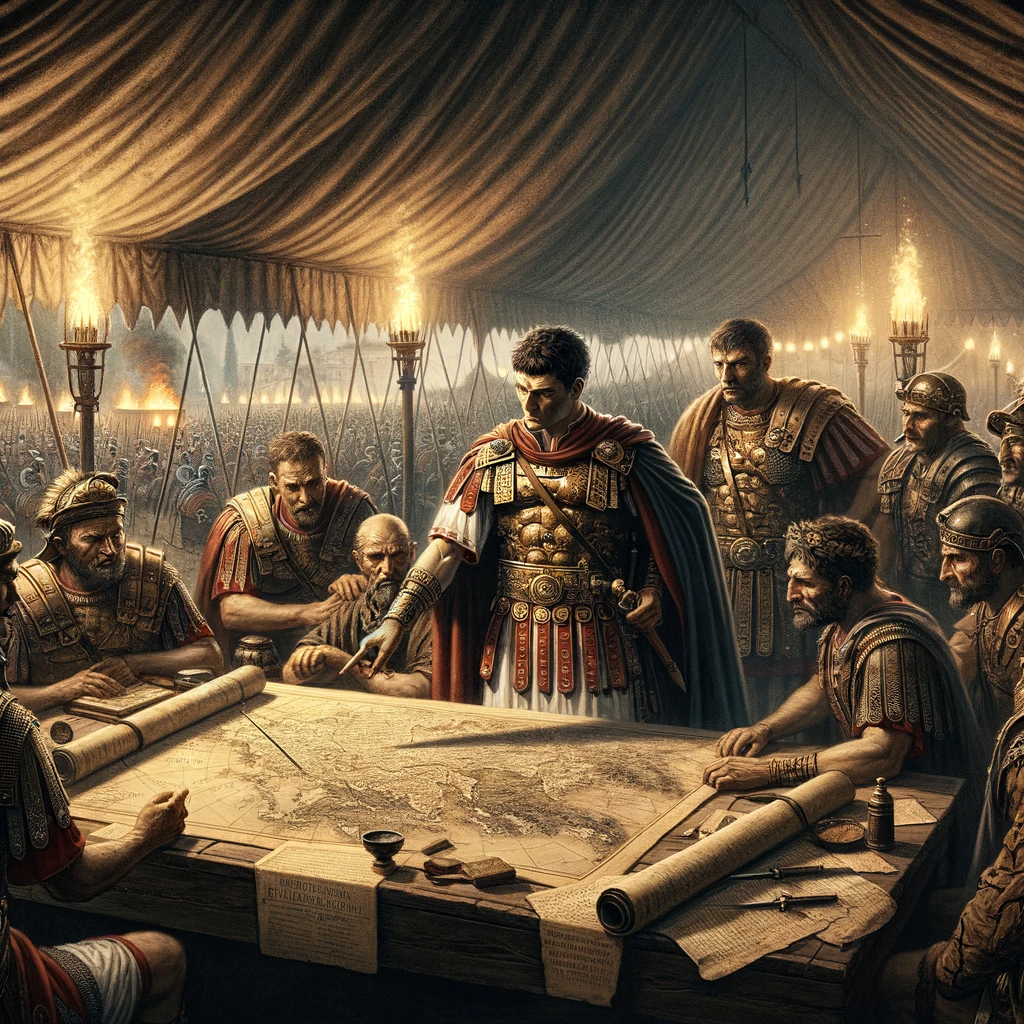
Caracalla's rule was characterized by paranoia and cruelty. He was known for his frequent purges of political enemies and perceived threats. His distrust even extended to his closest advisors and the Praetorian Guard. This constant fear of assassination made his rule increasingly erratic and despotic.
Caracalla's reign came to an end in 217 AD when he was assassinated by a disgruntled soldier, reportedly as part of a conspiracy orchestrated by his Praetorian Prefect, Macrinus, who succeeded him as emperor. His assassination marked the end of the Severan dynasty's stability and ushered in a period of military and political turmoil.
Caracalla remains a complex figure in Roman history. His reign was undoubtedly marked by violence and fear, yet his administrative reforms, particularly the extension of citizenship, had long-lasting impacts on the Roman Empire's structure and society. His legacy is a testament to the complexities of power, ambition, and the far-reaching consequences of imperial policies.

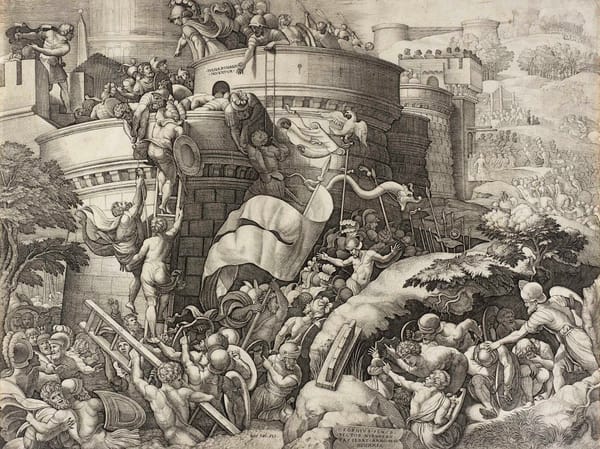
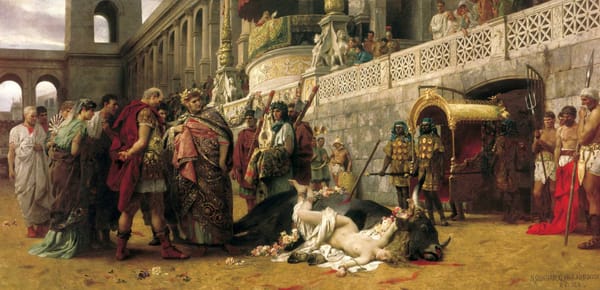
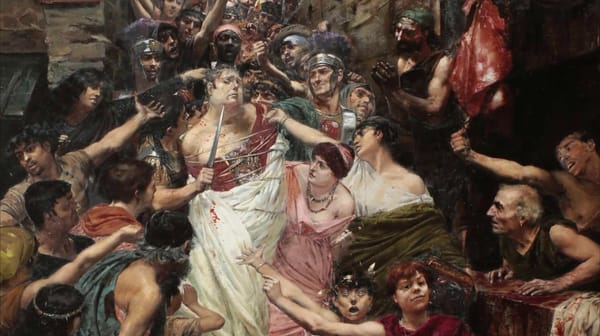
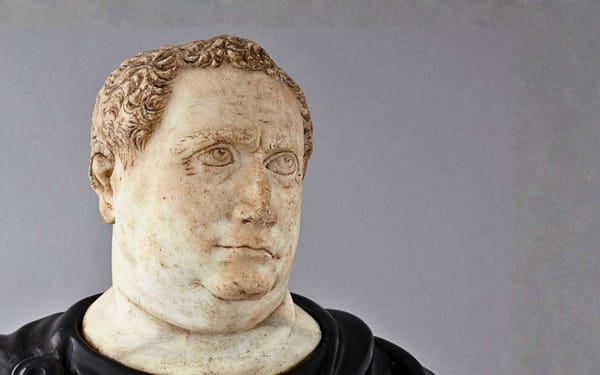
About the Roman Empire Times
See all the latest news for the Roman Empire, ancient Roman historical facts, anecdotes from Roman Times and stories from the Empire at romanempiretimes.com. Contact our newsroom to report an update or send your story, photos and videos. Follow RET on Google News, Flipboard and subscribe here to our daily email.
Follow the Roman Empire Times on social media: